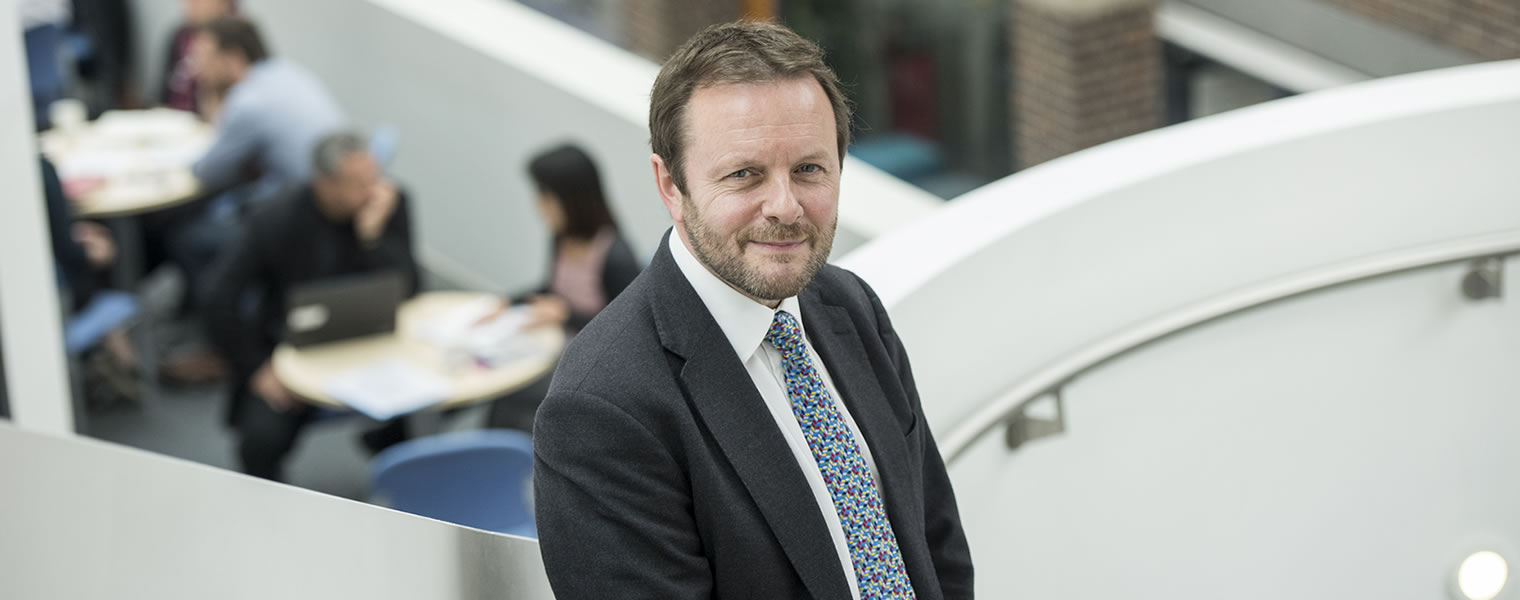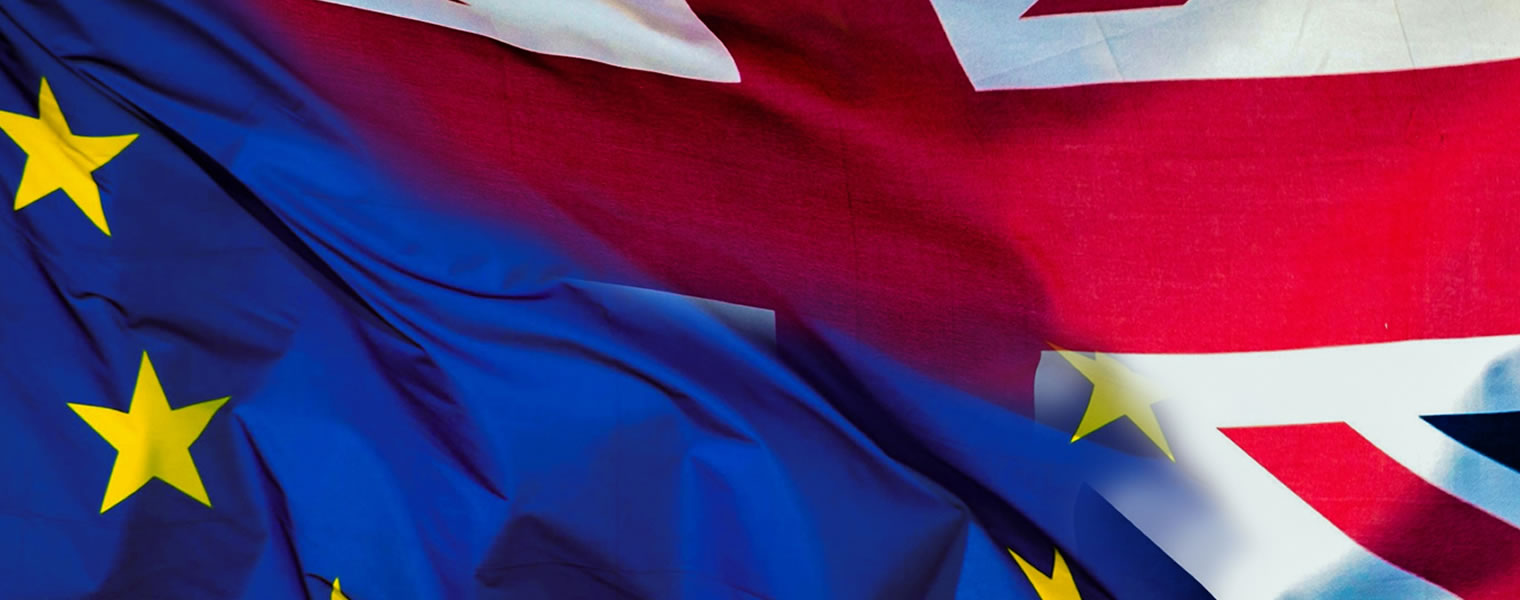Hartley News Online Your alumni and supporter magazine
At the end of March, Article 50 was triggered and the process of leaving the European Union began. Brexit remains at the forefront of the minds of the University community, with questions raised about how this could affect our position as a world-class institution and what staff and students can expect from the changes ahead.
Professor Colin Grant, Vice-President (International), outlines his role as the University’s representative for Brexit, Southampton’s position in Europe, and what staff and students can expect next.
Bringing a lifetime of experiences
I have long been passionate about the quality of education and research. I have seen and lived that quality as a student and as a postdoctoral fellow in some really excellent universities, which gives me a grounding and strong understanding to represent the University on all Brexit-related issues. I bring a lifetime of engagement with Europe, including speaking other European languages. I was an exchange student in Leipzig and Nantes, undertook my PhD fieldwork in Berlin and my postdoctoral work in Siegen. My first administrative role was Erasmus Coordinator. I am also a reviewer for the German Academic Exchange Service (DAAD) for its Global Networks and Partnerships scheme. I engage all the time with partners across the European Union. We are, after all, a European university.
I sit on two national bodies: the British Council Education Advisory Board and the Universities UK International Strategic Advisory Board. Both of these bodies are highly invested in the Brexit process and getting the best possible deal for education and the country. Recently, I was elected Chair of the Russell Group International Forum.
My role itself involves representing the University’s interests across all areas covered by Brexit: staff, students, education, mobility, research, government engagement, partnerships, and engagement with MPs, MEPs and the Lords. Brexit itself is a very broad, complicated process, and my role is to cover all of those issues.
Staying connected
It is important that we recognise where we stand at the moment – at the very start of the Brexit process. The University is in a very good position for the challenges posed by Brexit. Through the Worldwide Universities Network (WUN) we have significant reach around the world. We know that German, French and Swiss universities are really ascending the league tables, and we have some particularly strong collaborations with a host of other top European universities and stellar partnerships around the world. We have a balanced portfolio of interests.
The common denominator to all this is excellence. It’s as simple as that.
We are also members of the Global Federation of Competitiveness Councils (GFCC). We were admitted last October, and the company we keep (UC San Diego, Imperial, UBC) is an indicator of the high esteem in which we are held. This is another very interesting forum which brings together government, industry, businesses and universities worldwide to look at innovative solutions and how we remain competitive. Certainly by having WUN membership, a strong overseas presence, and being a member of GFCC, we are in a very good place.
Changing our view on Europe
Brexit does not alter our status as a leading European university, invested in European partners. We will redouble our efforts to reframe how we see Europe. You could argue that we have almost taken Europe for granted; we assumed that there would always be Erasmus funding for student mobility, for example. Most international strategies have tended to look outside of Europe, and there has tended to be an institutional split between European engagement and the rest of the world.
There is an opportunity for us now to change the way we see and engage even more strongly with the rest of Europe.
Ensuring a continuation of collaboration and community
It’s probably worth stating something really obvious; we are a European country and remain heavily dependent on world-class collaborations and very talented students. We have around 990 staff and 1,800 students from other European countries. Europe has a particularly rich history of providing world-class students, and doing high-impact, world-class research.
Funding
Understandably, questions about how Brexit will affect funding for research were raised as soon as the referendum results were announced last year. I would encourage continued engagement with the funding process. The message has to be that we are open for business; we are still members of the European Union and need to maintain that research impact and excellence.
Where there is a research programme anywhere in the world that is invested in excellence, Southampton will want to be involved. We have some absolutely stellar research partnerships, for example, with Singapore – which is not a member of the European Union. We will continue to support excellence as part of our 10-Year Plan.
The next steps
What next? We are using all the channels at our disposal.
I am currently building important relationships in this role; I am in close contact with the Pro Vice- Chancellor for Brexit at the University of Oxford, as well as the President for the University of Basel, about the implications of the Swiss referendum for EU scientists and professional staff and students. I am voting for two universities in the European Universities Association Board elections this month to ensure that the UK voice is heard, and in March I addressed the University and College Union (UCU) about Brexit issues.
As newly-elected Chair of the Russell Group International Forum, I will ensure we keep Brexit at the top of the agenda.
Communication is key
Communication about Brexit is integral to the University community moving forward, and I am aiming to ensure that there are a number of channels that can be used to communicate the latest information to staff. I have recently started a blog, Global Futures, which will contain up-to-date information with a personal and ‘live’ touch, about the latest issues as they break. You can read about my activities on my new blog, to stay up-to-date with my work in this area.
There is also the Public Policy Views on Europe Blog, an informative slide-deck summary of information on Europe, and the University website which is updated regularly.

